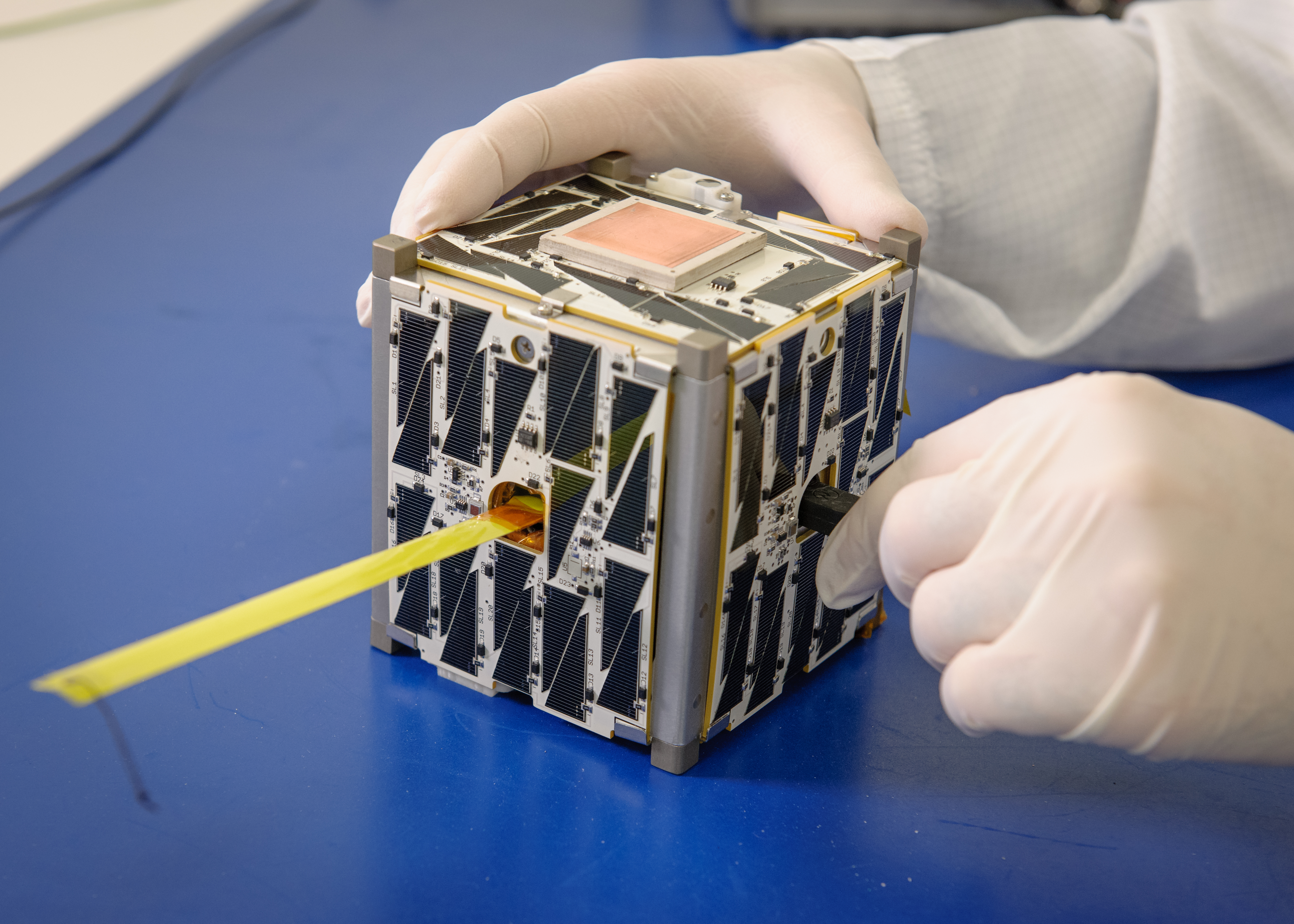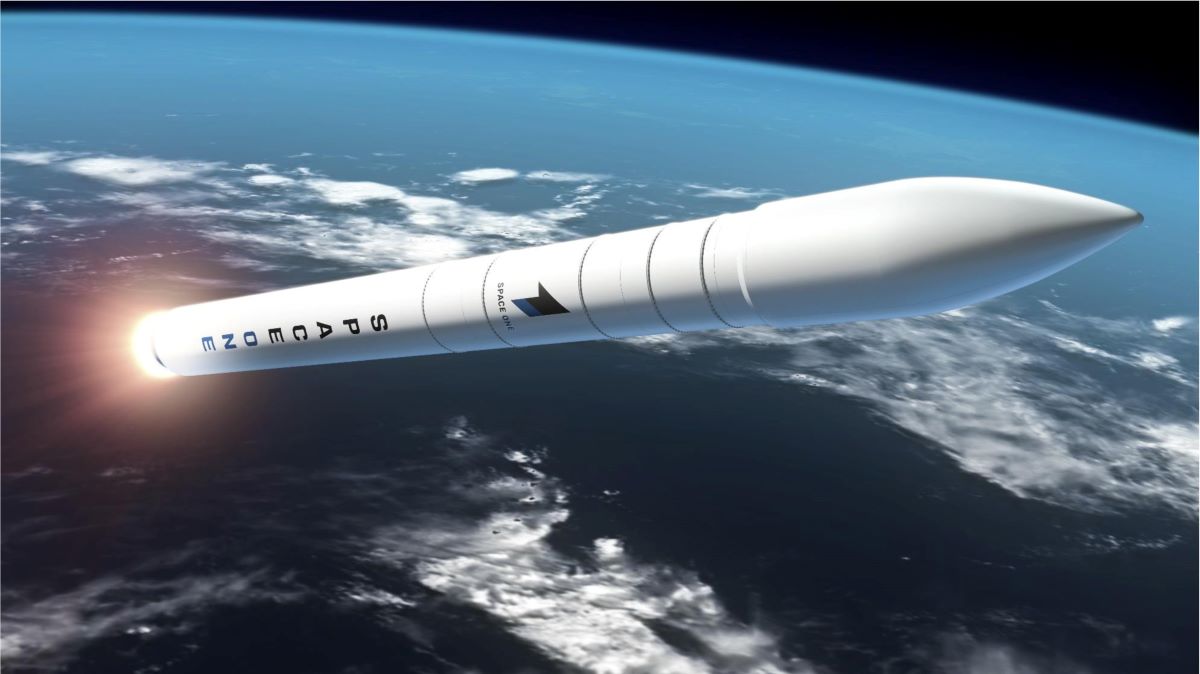Japan’s Space One Suffers Second Kairos Rocket Failure: A Setback for the Nation’s Space Ambitions
The Japanese private space sector has faced a significant setback as Space One, a pioneering aerospace company, encountered a major failure with its second Kairos rocket launch. The rocket, carrying critical payloads from several international partners, exploded shortly after takeoff, marking a second consecutive failure for the company within a span of nine months. This incident not only raises concerns about the future of Space One but also calls into question Japan’s broader ambitions to become a major player in the growing space industry. The nation’s hopes to establish itself as a space hub in Asia, with an emphasis on satellite launches, are now at a crossroads as it grapples with this unexpected blow.
The Kairos Rocket Failure
On the evening of December 17, 2024, the Kairos No. 2 rocket lifted off from Spaceport Kii, located in Wakayama Prefecture, Japan. Designed to carry five small satellites, including payloads from the Taiwanese Space Agency and a group of emerging Japanese tech companies, the mission was considered crucial to the company’s plans to develop affordable and reliable access to space. However, just minutes into the flight, the rocket suffered a catastrophic failure.
According to Space One, the rocket experienced an anomaly during the first stage of the flight, resulting in a loss of control. The rocket veered off its intended trajectory, and the onboard safety system was automatically activated to terminate the flight. Three minutes after liftoff, the Kairos No. 2 was destroyed, bringing the mission to an abrupt end. This failure marks the second consecutive launch failure for Space One, following a similar setback in March 2024, when the debut flight of the Kairos No. 1 rocket also ended in failure due to a technical malfunction.
The failure of the Kairos No. 2 rocket has cast a shadow over Space One’s aspirations and is a reminder of the complexities involved in commercial space flight. Despite the optimism surrounding the mission and the potential of the company to become a key player in Japan’s private space industry, the failure raises serious questions about the company’s readiness to deliver reliable and successful missions on a regular basis.
Space One’s Response and Commitment to Overcoming Challenges
Following the failure, Space One’s president, Masakazu Toyoda, expressed deep regret over the mission’s outcome. However, Toyoda was quick to emphasize the importance of learning from the failure, noting that valuable data had been collected during the flight that would contribute to future improvements. In a public statement, Toyoda remarked, “We are disappointed by the outcome, but we remain focused on our goal. We have gathered valuable information from this mission, and we are determined to use this to guide our next steps.”
Space One’s response to the failure highlights the company’s resolve to overcome the technical hurdles it faces. Despite the setback, the company remains optimistic about its long-term vision and its role in Japan’s space exploration efforts. Space One has stated that it intends to continue its plans to conduct regular launches, with the goal of carrying out 20 small rocket missions annually by 2029. This ambitious target is part of the company’s broader strategy to capitalize on the growing demand for small satellite launches, an area where Japan sees significant growth potential.
For Space One, this failure is not the end of the road but a learning opportunity that will shape the development of its future rockets. The company’s commitment to resilience and adaptation will be key in determining whether it can recover from this setback and emerge stronger. Given the volatile nature of space exploration, failures are often seen as stepping stones in the pursuit of long-term success, and Space One is determined to build on the lessons learned from this failure.

Japan’s Space Ambitions: A Vision for the Future
The failure of the Kairos No. 2 rocket is a significant blow not only for Space One but also for Japan’s broader ambitions in space exploration. Over the past decade, Japan has made considerable progress in space research, thanks in part to the efforts of the Japan Aerospace Exploration Agency (JAXA). However, Japan’s private sector has been slower to develop, especially in the area of small satellite launches, which are seen as the future of space access. Space One’s role as the nation’s primary private aerospace company has made it central to Japan’s plans to increase its participation in global space missions and contribute to the nation’s economic and technological growth.
The Japanese government has set ambitious goals for the country’s space industry. Prime Minister Fumio Kishida has highlighted space exploration as a key component of Japan’s future economic strategy, with a focus on the commercialization of space. By 2030, Japan aims to establish itself as a regional space hub, conducting 30 annual launches of small rockets. The government has allocated significant funding to support the development of private space companies, including Space One, in an effort to diversify the nation’s space capabilities.
Additionally, Japan’s space ambitions are tied to its broader international objectives. As a member of the global space community, Japan seeks to contribute to international scientific missions, such as lunar exploration, as well as to develop commercial partnerships with other spacefaring nations. A key component of these plans involves tapping into the rapidly growing market for small satellite launches, which is expected to see a substantial increase over the next decade. The global demand for affordable and frequent satellite launches presents a tremendous opportunity for Japan’s private space sector.
However, the failure of Space One’s second rocket has raised doubts about whether the company can meet these ambitious goals. While the Japanese government has committed significant resources to supporting the country’s space endeavors, the private sector’s ability to deliver on its promises remains uncertain. The path forward will require overcoming technical challenges, developing a reliable launch infrastructure, and building a reputation for successful, cost-effective missions.

The Impact on the Small Satellite Market
Japan’s space ambitions are closely linked to the growing demand for small satellite launches. Small satellites, or smallsats, are becoming increasingly popular among governments, research institutions, and private companies. These satellites are used for a variety of purposes, including Earth observation, communications, scientific research, and national security. The affordability and versatility of smallsats have made them an attractive option for many organizations, especially as the cost of traditional satellite launches remains high.
Space One’s focus on small satellite launches positions it well to capitalize on this growing market. However, with its second consecutive failure, the company faces increasing pressure to demonstrate its capability to meet the needs of its customers. The small satellite launch industry is highly competitive, with a number of other players, including global giants like SpaceX and Rocket Lab, already offering reliable and affordable launch options. In order to remain relevant, Space One must improve its rocket design and operational reliability while also working to expand its customer base.
The market for small satellite launches is poised for significant growth, and the companies that can establish a reputation for success and reliability will likely dominate the sector. Space One’s ability to overcome its current challenges will be crucial for its survival and long-term success. If the company can build a proven track record of successful launches, it could play a significant role in the global small satellite industry, benefiting from the growing demand for affordable access to space.
Comparative Analysis: Japan’s Space Sector Challenges
While Space One’s setbacks are significant, they are not unique in the broader context of Japan’s space industry. JAXA, Japan’s national space agency, has also encountered difficulties with its own launch programs. The H3 rocket, which was intended to replace the aging H-IIA rocket, faced multiple delays and a failed launch attempt in early 2024. This failure has further underscored the challenges faced by Japan’s space sector, both public and private, in achieving the level of success required to compete with other nations in the space race.
The broader trend of launch failures in Japan highlights the need for more robust infrastructure, technical expertise, and financial support to ensure the country’s place in the global space economy. Despite these hurdles, Japan’s space ambitions remain strong. The government continues to invest heavily in space-related technologies, and the private sector’s potential remains vast.
Conclusion: The Road Ahead for Space One and Japan’s Space Future
The failure of Space One’s second Kairos rocket is a significant setback for both the company and Japan’s broader space ambitions. However, the company’s resilience and determination to learn from its mistakes will be key factors in determining its future success. The global space industry is highly competitive, and while setbacks are a natural part of technological development, Space One’s ability to recover and build a track record of successful launches will ultimately determine whether it can achieve its goals.
For Japan, the failure of Space One’s rocket is a reminder of the challenges and complexities of the space industry. Japan’s space ambitions remain strong, but achieving them will require overcoming technical challenges, increasing investment in infrastructure, and ensuring that both public and private entities can work together to advance the nation’s capabilities. As Japan continues to pursue its goal of becoming a regional space hub by 2030, the lessons learned from Space One’s failures will be crucial in shaping the future of Japan’s space industry.
The road ahead for Space One and Japan’s space sector is still uncertain, but with continued commitment and innovation, there is hope that the country can overcome these challenges and establish itself as a key player in the future of space exploration.











